to Doki Doki Panic Club! r/DDLC
Doki Doki Panic Doki Doki Panic was never released outside Japan, but it might seem familiar….that is because, in 1988, the game was given new graphics and transformed into Super Mario Bros. 2 for the USA & Europe! The original Japanese Super Mario Bros. 2 was considered to be too hard for American players so this new version was created instead.

Doki Doki Panic Doki doki panic, Mario bros, Mario characters
This category contains characters who appear in Yume Kōjō: Doki Doki Panic. Add this category if there are more pages relating to this category. To add a category to a page, add "[[Category:Characters in Yume Kōjō: Doki Doki Panic]]" to the bottom of that page.

Doki Doki Panic, for the Disk System. 1987. The source game for Super Mario Bros. 2 New
Yume Kōjō: Doki Doki Panic, translated as Dream Factory: Heart-Pounding Panic and usually referred to as simply Doki Doki Panic, is a Japan -only video game developed by Nintendo in cooperation with Fuji Television (who also published All Night Nippon: Super Mario Bros.) for the Family Computer Disk System to promote its event called Yume Kōjō '.
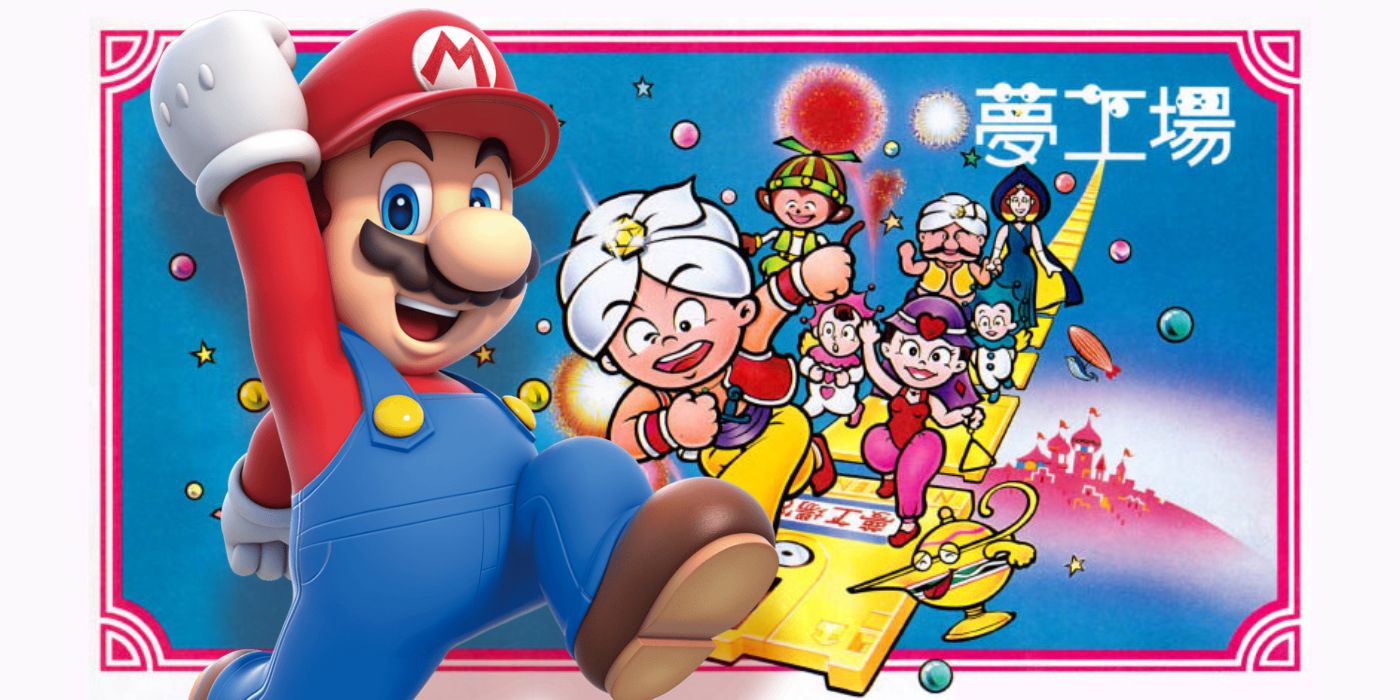
Doki Doki Panic Explained What Super Mario Bros. 2 Really Was
Original case artwork for Nintendo's 1987 game Doki Doki Panic. Image: Wired.com Super Mario Bros. 2's long, strange trip to the top of the charts in 1988 began with a prototype videogame that.
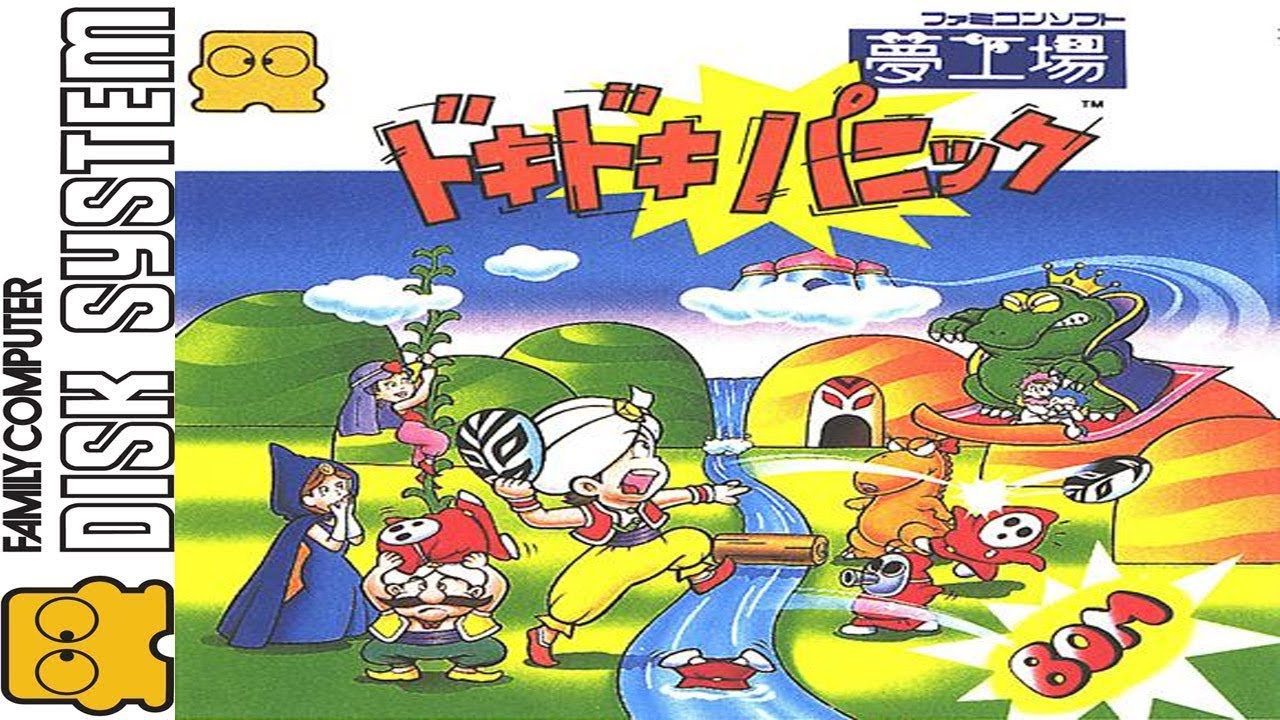
It Can Finally Be Told The Whole Story Behind Yume Kōjō Doki Doki Panic Attract Mode
Dream World: Dokidoki Panic (NES) - online game | RetroGames.cz Controls Dpad keyboard | gamepad UP : UP | UP DOWN : DOWN | DOWN LEFT : LEFT | LEFT RIGHT : RIGHT | RIGHT Buttons keyboard | gamepad START : ENTER | START SELECT : SHIFT | SELECT B : Z | X A : X | A TURBO B : C | B TURBO A : S | Y Loading. Ready 0.0 FPS Emulation speed:

Yume Koujou Doki Doki Panic Review (NES) Nintendo Life
Yume Kōjō: Doki Doki Panic (in English, "Dream Factory: Heart-Pounding Panic"; 'doki doki' is onomatopoeia for a rapidly beating heart) is a Famicom Disk System game released only in Japan. The game was originally produced in conjunction with the Japanese television network Fuji TV as a means to promote the network's 1987 Yume Kōjō event.

Doki Doki Panic + SMB2 Overworld Theme Mashup YouTube
Yume Kōjō: Doki Doki Panic (lit. "Dream Factory: Heart-Pounding Panic") is a 1987 platform game released for the Family Computer Disk System about a family who plans to rescue two children. "Doki doki" is a Japanese onomatopoeia for a rapidly beating heart, and it is commonly found in Japanese video game titles, carrying connotations of excitement and anxiety.

Yume Koujou Doki Doki Panic (1987)
Doki Doki Panic itself, however, has never been rereleased (likely owing to rights issues, with Fuji TV owning "Yume Koujou" and the characters that were ousted for Super Mario Bros. 2 ), with very few mentions of it in other Nintendo titles. Sub-Page Prerelease Info Unused Graphics
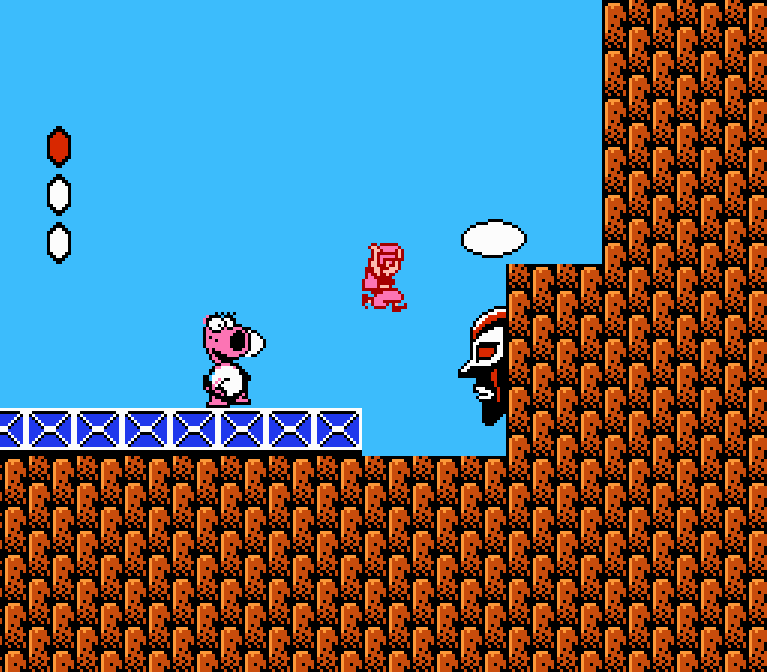
Yume Kojo Doki Doki Panic (Game) Giant Bomb
The words "Doki Doki" represent the Japanese sound effect for a heartbeat, typically used when someone is going through stress or, well, panic. This phrase has become more common in popular culture, as evidenced by the game Doki Doki Literature Club including it in its title as well.
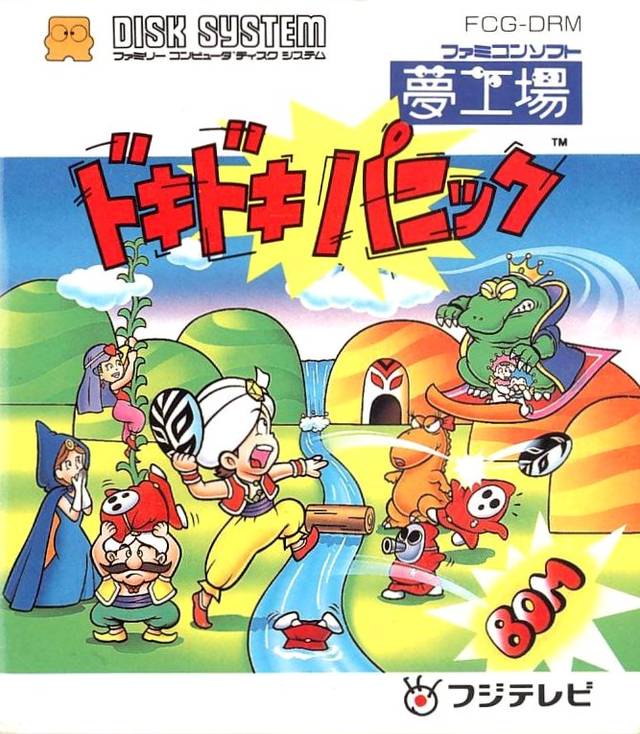
Yume Koujou Doki Doki Panic (J+English Patched) FDS ROM Download CDRomance
Yume Kōjō: Doki Doki Panic, (夢工場 ドキドキパニック Yume Kōjō: Doki Doki Panikku in Japan) is a video game released for the Famicom Disk System add-on in 1987. As Super Mario Bros.: The Lost Levels was considered frustratingly difficult by Nintendo of America, this had Nintendo needing to make a quick.
Doki Doki Panic Iconoclasts version 1080p by ScepterDPinoy on Newgrounds
In Super Mario Bros. 2, this was changed to a singular 1-Up mushroom that is identical for everyone. Mushroom Blocks: The Mushroom Blocks of Super Mario Bros. 2 did not originally resemble mushrooms at all. Or blocks for that matter. They were a series of masks that the players would pick up and toss around.

Doki Doki Panic Part 8 TBC Plays YouTube
Gameplay Super Mario Bros. 2 features some enemies and items from Yume Kōjō: Doki Doki Panic. The playable characters can now also lift and throw things to defeat enemies. Super Mario Bros. 2 is a 2D side-scrolling platform game. The objective is to navigate the player's character through the dream world Subcon and defeat the main antagonist Wart.
I finally got to play Doki Doki Panic for the first time r/gaming
Find the deal you deserve on eBay. Discover discounts from sellers across the globe. Try the eBay way-getting what you want doesn't have to be a splurge. Browse doki doki panic!
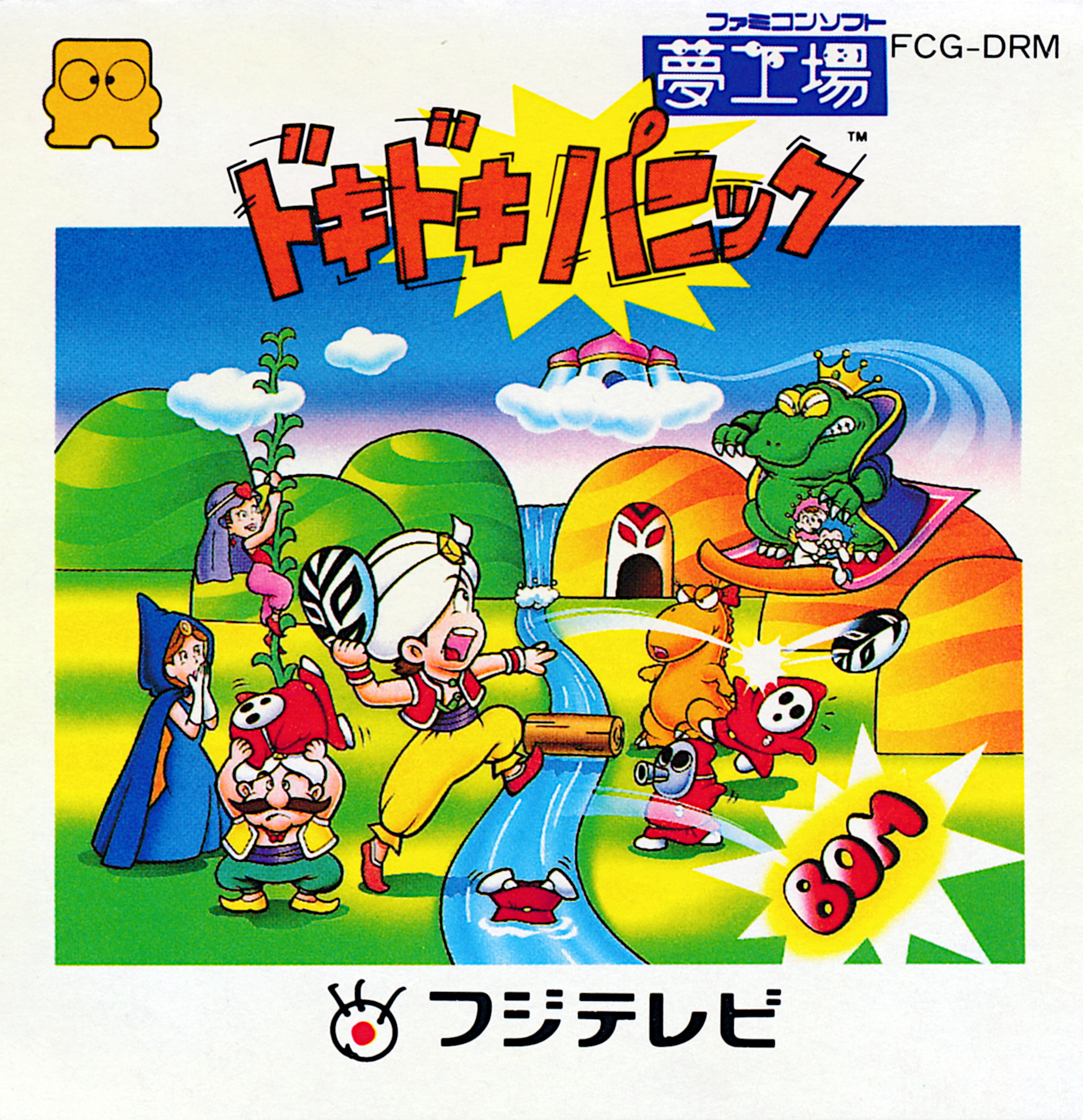
Yume Kōjō Doki Doki Panic Details LaunchBox Games Database
Doki Doki Panic was based on Yume Kōjō '87, an event sponsored by Fuji TV and held from July 18th to August 30th, 1987. On the last day of this event, there was a grand finale. [6] This finale was meant to introduce a new generation of media that would arrive in the years to come, with various technical displays, as well as to advertise Fuji TV's fall lineup of shows.

Doki Doki Panic Ending (SNES) YouTube
Doki Doki Panic. An early prototype with vertical scrolling was developed by Kensuke Tanabe, designed by a team led by Shigeru Miyamoto, and programmed by Nintendo's frequent partner, SRD. The first prototype's gameplay emphasizes vertically scrolling levels with two-player cooperative action: lifting, carrying, and throwing each other; lifting, carrying, throwing, stacking, and climbing.

Yume Koujou Doki Doki Panic (NES) Screenshots
Yume Kōjō: Doki Doki Panic (literally "Dream Factory: Heart-Pounding Panic") is a platform game made by Shigeru Miyamoto in 1987 for the Family Computer Disk System. It started development as a Mario -style tech demo by Miyamoto and company, and was dolled-up as Super Mario Bros. 2 after its initial release.